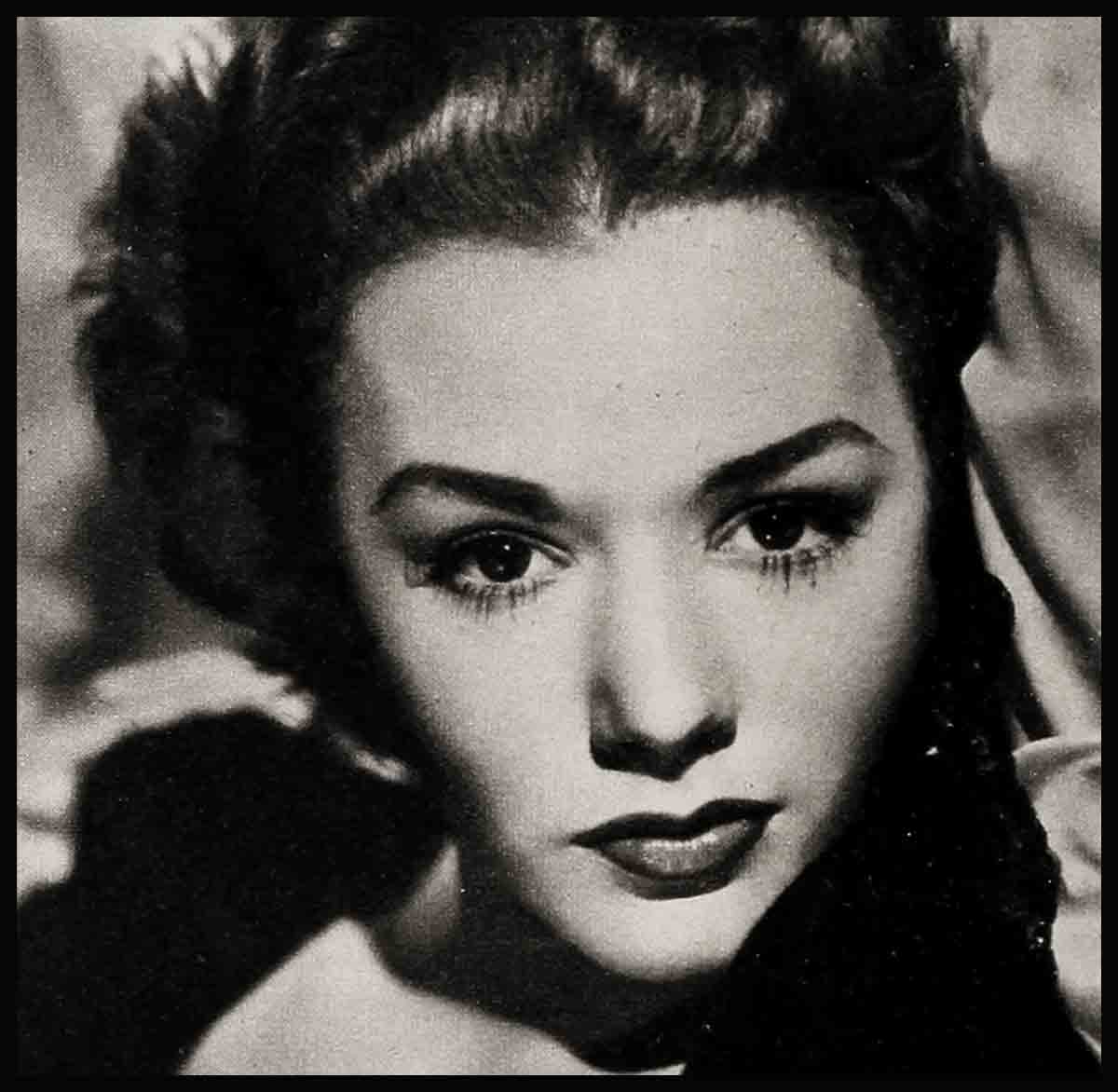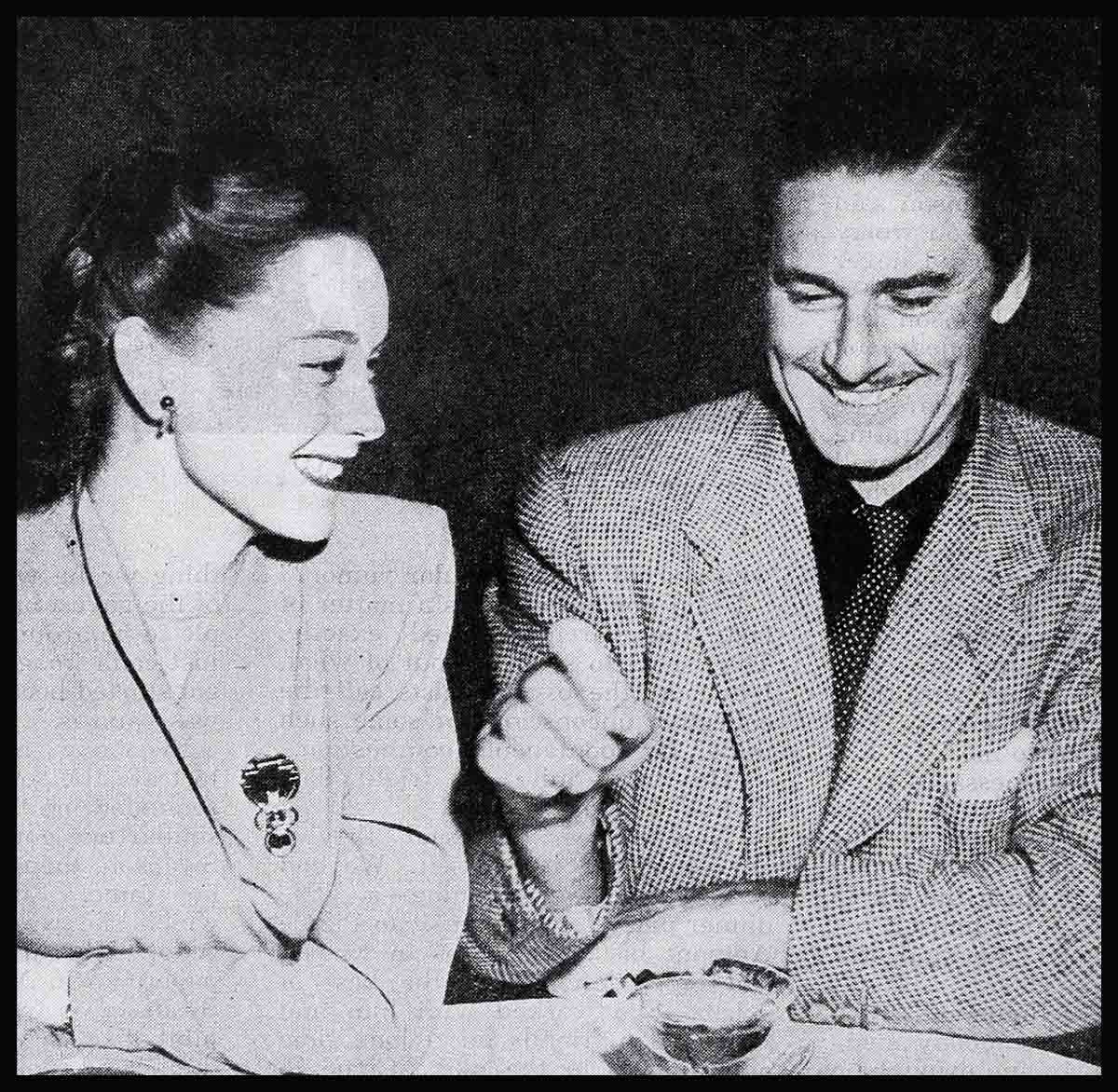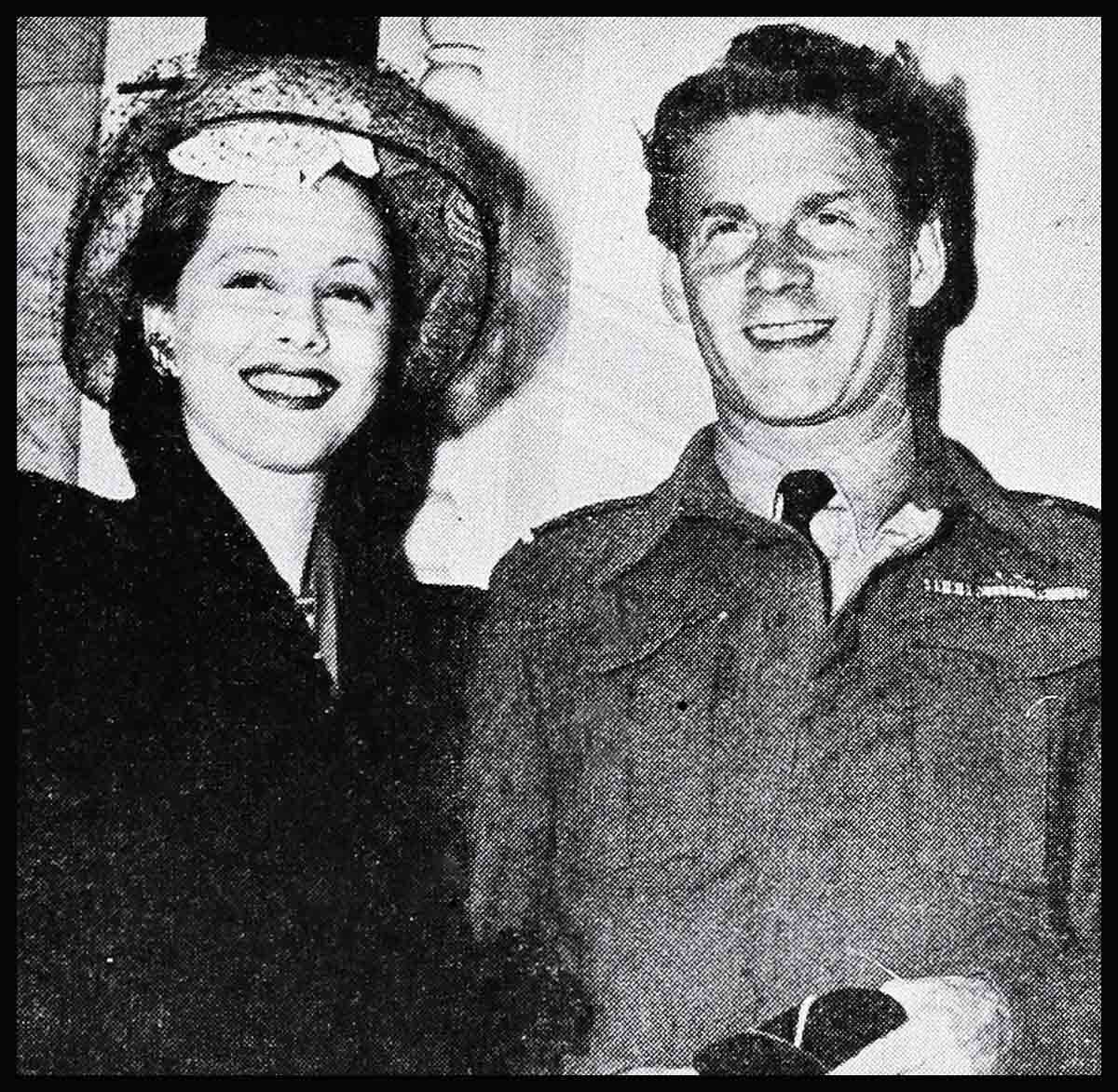
Problems Of A Bachelor Girl—Piper Laurie
“Piper Laurie and Rock Hudson dance cheek-to-cheek at the Mocambo. Wedding bells soon?”
“Piper Laurie is engaged to Producer Leonard Goldstein.”
“Eastern socialite and Piper Laurie hold hands at ‘21.’ This is serious!”
If all that was written about: Piper’s intentions during the past three years were true, she’d be the most fickle girl in Hollywood. Periodically, columnists have her engaged, secretly married and separated.
Every time she dates a fellow more than once, the rumor mill starts to grind. If she’s seen with anyone but her “acclaimed” choice of the month, more gossip. Chances are the cycle won’t stop till Piper gets married—if then!
Piper’s problem: is serious—but basically no different from the same type of problem encountered by thousands of bachelor girls al] over the United States. Whether the gossip starts in a syndicated column or by a nosey neighbor, on the studio set or across the backyard fence of a mid-western town, the causes are usually similar—the effects always the same!
HIS sort of tattle—in word or print—can hurt in more ways than one. During the time Piper was supposedly “engaged” to Leonard Goldstein, congratulatory telegrams and presents from her relatives soon started to arrive. The much embarrassed Piper then had to sit down and write apologetic explanations and, of course, return the presents.
Also, when word spread around, men outside the industry who weren’t familiar with Hollywood’s interpretations of romances, refrained from calling her for a date. As a result, she spent most of her evenings at home when she would have liked to go dancing, or to a movie or party.

Dating is a problem in itself, even for the beautiful Piper—for there are not many eligible bachelors among the movie crowd—eligible as far as Piper is concerned, for her standards are high. Others, outside the industry, are often too bashful to ask for a date, or afraid that a movie star of Piper’s standing wouldn’t even consider an evening with anyone less than a hotel heir, a Texas oil millionaire, or a European nobleman.
Piper had one such experience during her recent personal appearance tour to the Eastern Seaboard states.
In one of the New England cities, a luncheon was arranged for her to meet representatives of the local press, as well as college publications.

Among the reporters was a tall, handsome, quiet young man, who was a senior at a nearby university, and editor of the school’s “Weekly.” Timidly, he hinted for a date with Piper for that night, but didn’t dare to come right out and ask.
Piper indicated her willingness to accept, but that wasn’t enough—not till she told him that she was interested in the local sights, and had no ore, absolutely no one, to take her around. Then he popped the question.
More often, however, the problem is to keep from making the “wrong” date. Wolves, Piper has learned, are neither restricted to Hollywood, nor to age groups, profession, family background, weight, height or color of hair.

She had her first such experience when she was eleven, on her first date. After that she didn’t want another for three years!
The boy who took her to the Paramount Theatre in Los Angeles attended the same class at John Burrows Junior High School. Several times he’d asked her for a date before the shy Piper had accepted.
He started out like a perfect little gentleman. Brought her a corsage. Helped Piper into her coat. Opened the door. And at the movies, supplied a liberal amount of popcorn and candy.
But once inside the darkened theatre, he quickly grew horns. He started by putting his arm around Piper. She was too timid to complain. He grew a little bolder and tried to draw her closer. Somehow she managed to wiggle out of his embrace. But when he leaned over to kiss her, she wanted to go home. “I’m too young,” she insisted. “Honest, I am . . .”

At twelve, an amorous romeo may be “cute.” At twenty-five, he can be annoying, embarrassing and repulsive—as Piper found out again only a short time ago.
Following a big Hollywood premiere, Piper attended an official party. Her date, a doctor, was called away on an emergency. She was stranded without transportation home.
An enterprising young guest, whom Piper had known only casually before, quickly took advantage of the situation by offering to drive her home. She accepted. On the way back, she had to wrestle harder than Gorgeous George on television.
To Piper, however, there is a difference between a date who’ll see how far he can go with every girl, and a fellow who may take too much for granted, but is still a gentleman. This happened to Piper not long ago when her date, after unsuccessfully trying to kiss her, apologized, red as a beet. She knew he was embarrassed and felt kind of sorry for him.
She didn’t hear from him again till after her next picture was released. Then she received a pleasant, but formal, note of congratulations. Quite by accident they met at Wil Wright’s Ice Cream Parlor the day after, and their friendship sprang up anew—with no more cat-and-mouse games. They’ve been good friends ever since.
Piper is indifferent to the financial background of her prospective suitors. But she does feel more at ease with someone connected with the film business. Naturally, she can relax more easily discussing motion pictures than the social aspects of TVA, nuclear fission, or the productivity of Rhode Island Red chickens.
Before meeting someone, Piper prefers to familiarize herself with the background of her prospective date or dinner partner. When she doesn’t, she is liable to get into an embarrassing position, like at the dinner party a couple of months ago.

Next to her sat a tall, grey-haired, distinguished looking man who talked rather vaguely of the industry with which he was connected. Innocently, Piper asked what sort of work he did. He turned out to be the president of one of the biggest steel corporations in the United States!
Piper still worries whether or not people like her. It’s an aftermath of her school days, when she was considered one of the homeliest girls on campus.
Today it is hard to believe that she was once described as a “square box with a carrot red top.”
Those were the days of freckles and pigtails, when no one would ask her to dance, when she learned that a wallflower wasn’t something decorative, when jibes could be more vicious than a mad dog.
Then, as well as today, clothes presented a very special problem, and often a heartache.
She’ll never forget the week preceding her first Junior High School Prom when she was the only girl in her class who didn’t have a long dress.
Most of her wardrobe consisted of hand-me-downs from her older sister. A new dress, particularly a formal, was out of the question for financial reasons.
The day before the dance, Piper went shopping with one of her girl friends who purchased a lovely new gown at the May Company. While waiting for her, Piper noticed a chartreuse dress—a $25 dream.
The salesgirl offered a solution. “If you don’t have the money with you, we’ll send it COD.”
Piper didn’t dare. In those days, $25 bought half a month’s supply of groceries!

Nevertheless, that night she described the dress to her mother—because Piper knew that without an evening dress she couldn’t even attend the Prom.
Her mother’s philosophical reply, “If you’re supposed to be at the dance, you’ll be there . . .” didn’t help her daughter. That night, Piper cried for hours and filled pages and pages of woeful sorrow into her diary.
The next morning Piper’s mother found a $5 formal—not as pretty as the one Piper had seen, but adequate.
Today, Piper can buy $25 or $250 dresses, but the clothes problem is as much on her mind as it was ten years ago.
Although Piper has just come of age, and now has access to the money the court made her save during the past three years, she is unwilling to go overboard in her expenditures. Instead, she lives on a very strict budget.
Piper gets most of her clothes from a local department store, and consequently more than once has attended parties where she was dressed like one, and sometimes two other girls.
To a Hollywood actress, a mink coat is as important as a pair of overalls to a mechanic. (Aside from that, Piper is feminine enough to crave one anyway.) If she wants to stay within her budget, however, she can afford it no more than her mother could afford to give her a $25 dress ten years ago.
Clothes, dates, avoiding gossip—these are but a part of Piper’s most important problem: namely, finding the right man to marry. She doesn’t want to make a mistake. Hollywood’s divorce rate, although lower than that of the nation as a whole, is more publicized, more pronounced, and more scaring to someone like Piper to whom marriage is an institution and not a pastime. At least, if she doesn’t find the right man, she has a well established career. Should that fail, she can always find a job as a typist, for early in life Piper decided to be able to depend upon herself—no matter what might happen.
So you see, basically, Piper’s problems differ little from those of bachelor girls in all the big and little towns across the nation.
THE END
—BY TOM CARLSON
It is a quote. SCREENLAND MAGAZINE JULY 1953





No Comments